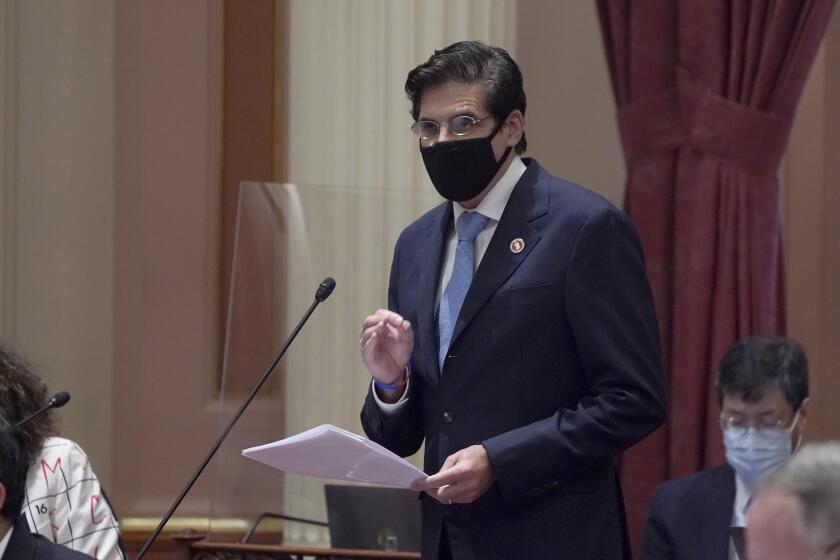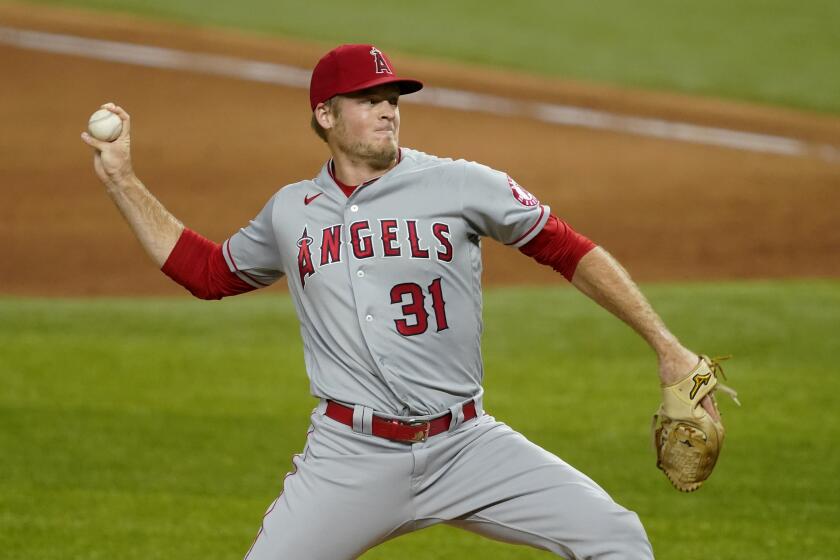Column: Can Shohei Ohtani improve on his historic season? That’s his goal
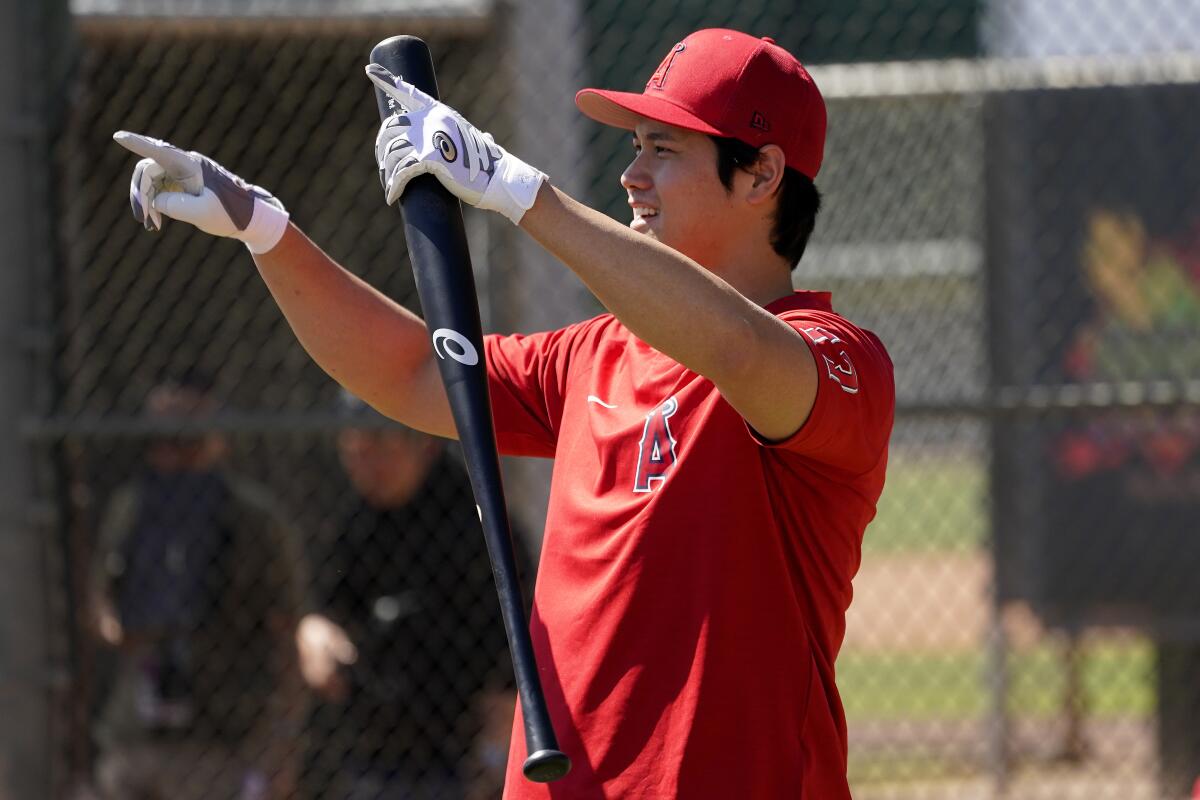
- Share via
TEMPE, Ariz. — On the surface, nothing had changed.
Shohei Ohtani was as soft-spoken Tuesday as he was five years ago when he was in camp with the Angels for the first time.
He responded to questions with the enthusiasm of a customer service representative.
The majority of his answers were brief.
He rarely smiled.
The bland mask concealed the single greatest force at the Angels’ spring training complex, an ambition as gargantuan as some of the homers the 27-year-old two-way player launches in batting practice.
Others viewed Ohtani’s 2021 campaign as a once-in-a-century tour de force. Ohtani saw his MVP season as something else: a starting point.
“If I think of trying to do what I did last year, it will be hard to put up the same kinds of numbers,” Ohtani said in Japanese. “I would like to aim higher and higher.”
Ohtani made similar remarks in his home country over the offseason, about how he thought of his numbers from last year as a baseline for future seasons.
Relayed Ohtani’s sentiments, one Angels executive laughed with delight.
Sen. Josh Becker (D-San Mateo) said Tuesday he plans to introduce legislation that would require major league teams to grant a player freedom after four years in the minor leagues, instead of seven.
“Some baseline that is!” the executive said.
Ohtani finished third in the majors with 46 home runs. He drove in 100 runs and stole 26 bases. He was also 9-2 with a 3.18 ERA in 23 starts as a pitcher.
Ohtani’s optimism was striking, especially in the spring training complex of an organization as troubled as the Angels.
They are still feeling the aftereffects of pitcher Tyler Skaggs’ death, which resulted in the recent federal drug conviction of former team communications director Eric Kay. Joe Maddon upset franchise cornerstone Mike Trout by saying he could be moved from center field, requiring the lame-duck manager to correct the record the next day. The team’s quantity-over-quality approach to pitching backfired last year, prompting the Angels to stake this season on the previously damaged arm of Noah Syndergaard.
The last time the Angels were in the postseason was in 2014.
Little wonder owner Arte Moreno declined to field questions from reporters Tuesday while visiting the team’s spring training complex.
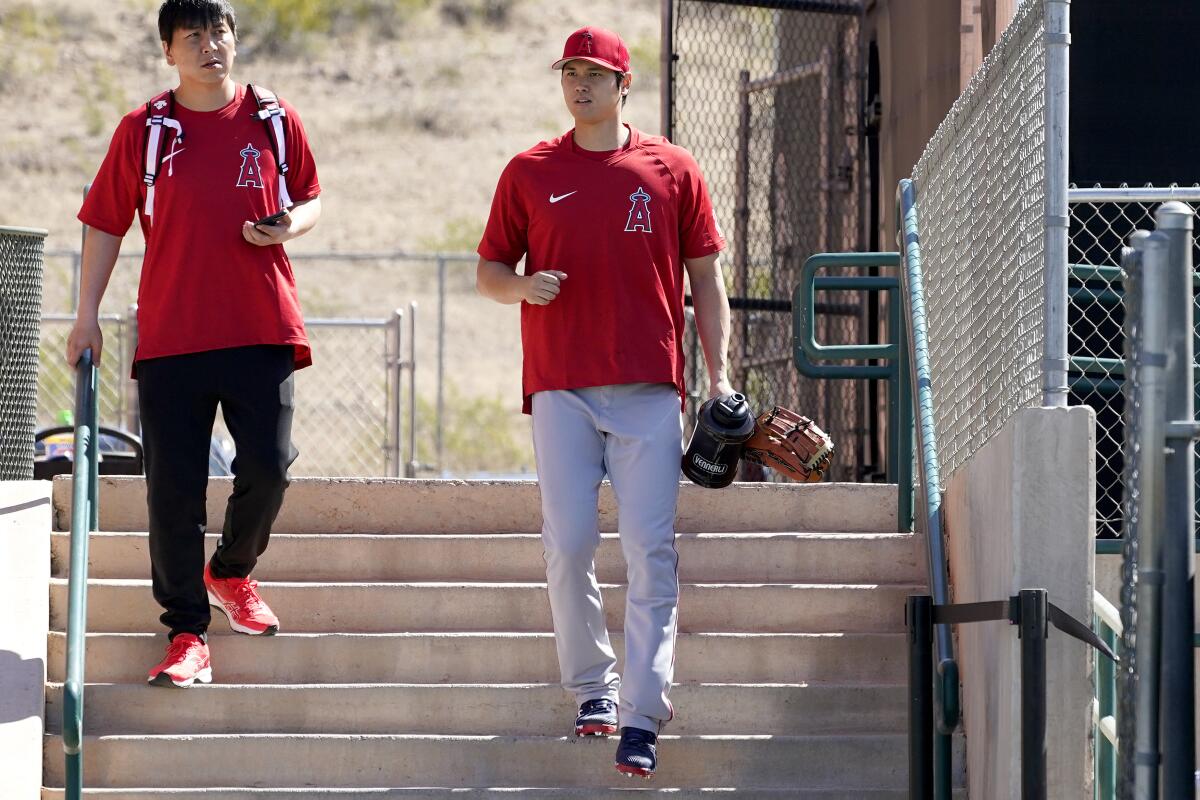
But regardless of how their high-ceiling, low-floor roster performs, the Angels will be Ohtani’s team, which means they will remain a subject of interest.
In the first days of spring training, Japanese cameramen have positioned themselves on top of a mountain next to the Angels’ facility to better track Ohtani’s movements.
At least 30 reporters watched Ohtani throw his first bullpen session of camp, which consisted of 24 pitches. Nearby, there was a group of 20 or so Angels executives and scouts.
“Physically, I feel I’m already in a better place than I was last year,” Ohtani said.
Around this time last year, Ohtani was still regaining his feel as a pitcher after an elbow injury limited him to two short starts in 2020.
He said he pitched to batters once before reporting to camp, at a Driveline training center in Phoenix. He also faced live pitching four or five times as a hitter.
His goals now include a Cy Young Award.
“Of course, I have feelings of wanting to win it,” Ohtani said. “But if you don’t play an entire season, you can’t start seeing that as a possibility. It’s not something you can get just because you want it. I think it’s important to first take care of what you have to take care of.”
The priority of staying healthy was repeated several times by Ohtani, who was confident he would produce as long as he was on the field.
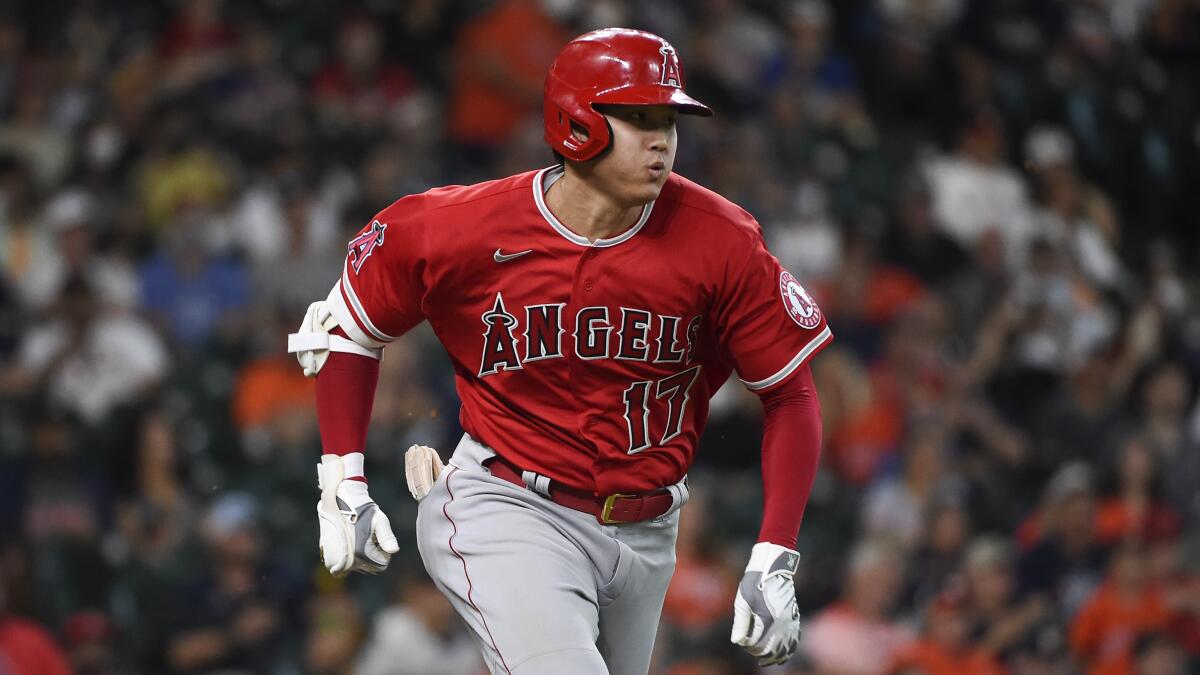
“If the number of starts increases, I think the statistics will be good,” he said. “If you’re pitching more, it means you can take the mound with confidence. If I can take the mound with more confidence than I did last year, I think the numbers will be better.”
He said he also thought he would benefit from the implementation of the designated hitter in the National League, as the rule change will allow him to be in the lineup more often in interleague games.
Instead of pursuing statistical benchmarks, Ohtani said he was looking to increase his number of games played. He was in the Angels’ lineup 146 times last year and made 639 plate appearances.
“I think that by playing in more games, the numbers will improve,” Ohtani said.
Told that his body looked more sculpted than it had in the past, Ohtani said he weighed 225 pounds, which is close to where he was last year.
“But the weights I lift and the strength of my body are things that I think are increasing every year,” he said. “Starting in camp, I would like to do my best to make that come out in my play.”
Relief pitcher Ty Buttrey walked away from baseball last spring, but he returns to the Angels refreshed and ready to be an asset in the bullpen.
Ohtani declined to talk about the possibility of a contract extension, saying he was trusting agent Nez Balelo to handle any negotiations.
Hours before Ohtani spoke, Maddon did what he could to temper expectations.
“It’s hard to imagine he’s going to do more this year than he did last year,” Maddon said. “I’ll take a repeat performance, add in maybe several more innings as a pitcher.”
Of course, Ohtani was the one who imagined his MVP season when others around the game said he should abandon pitching and become a full-time hitter.
And now that others think he’s reached the limits of what’s possible, Ohtani continues to imagine how he could further push the boundaries of a sport played professionally in this country for 175 years.
More to Read
Go beyond the scoreboard
Get the latest on L.A.'s teams in the daily Sports Report newsletter.
You may occasionally receive promotional content from the Los Angeles Times.

